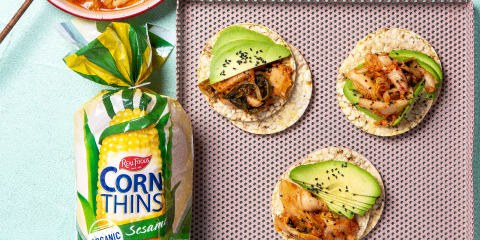The Importance of Fermented Foods for Your Gut Health

A healthy gut microbiome is a key conductor to your overall health and wellbeing. Gone are the days where fiber was seen just as an important component to staying regular on the toilet. There is growing acceptance of the need to follow a diet which includes adequate fiber to promote an optimal gut microbiome.
Fiber is not as simple as it can seem. Your gut microbiome can be altered by not only the amount, but the types of fiber included in your diet. In addition to the positive health benefits of fiber new research gives insight to the potential roles that fermented foods may have in promoting your optimal gut microbiome.
Your gut microbiome is as unique to you as your fingerprint. Everyone has different numbers and types of microbes which make up their own unique optimal gut microbiome. Saying this, research strongly suggests that including adequate amounts of dietary fiber is a key component of creating a gut microbiome which supports your health. This is because the health promoting microbes require plant-based foods as a primary fuel source.
Plant based foods provide prebiotic fiber as well as other fuel components like polyphenols. Different types of microbes need different types of plant-based foods. This is why aiming to include thirty different plant-based foods a week is a great lifestyle goal to support your health promoting microbes to thrive.
An adult needs between 25-38 grams of dietary fiber each day. By including at least half of each meal and snack as a source of plant foods you are well on your way to achieving your goals. These can include plant foods such as whole grains, or whole grain containing foods like Corn Thins slices, nuts, seeds, legumes, beans, fruits, and vegetables.
A clinical trial selected 36 adults to be randomly allocated to follow a diet high in fiber or including fermented foods for ten weeks. The results supported previous research on the importance to include adequate fiber to optimize gut microbiome function and promote an optimal individual gut microbiome.
In addition, this new research suggests that including fermented foods in your diet is also important. Fermented foods are foods which have been created using microbes. Foods such as sauerkraut, yoghurt, kefir, tempeh, kombucha, and miso. These foods may or may not be classified as probiotic sources. A probiotic source needs to include live microbes which make it alive to the part of your gut where they reside and be present in sufficient numbers to give a beneficial health effect to you as the host.
Researchers found that fermented foods increase the diversity of health promoting microbes in your gut. Just like a garden when having more flowers varieties can make a garden more beautiful, having more diversity in your gut can increase the health promoting factors your body receives.
Results from this study also found a reduction of 19 inflammatory markers as well as 4 types of immune cells showed lower levels of activation when fermented foods were included in the diet. Inflammatory markers are linked to an inflammatory state in your body. If inflammation occurs over a long or chronic period this can cause diseases such as cancer, metabolic disease, type two diabetes, and heart disease as well as obesity and autoimmune conditions such as arthritis.
These positive effects on the gut microbiome with the inclusion of fermented foods were seen to increase with an increase in the amount of fermented foods servings size in the diet. This research is exciting as it looks at the potential health effects of fermented foods regardless of the fact if they are considered probiotic sources or not.
Ways you can include both fiber and fermented foods in your day could be:
- Enjoying some Corn Thins slices topped with sauerkraut and tuna.
- Have a snack of yoghurt with berries and cinnamon on top.
- Make a stir fry using Asian style vegetables and tofu.
- Make an egg and salad sandwich and enjoy with a warm cup of miso tea or kombucha on the side.
Take home message: If you are wanting to optimize the health promoting potentials of a healthy gut microbiome there are several lifestyle factors to add to your daily routine. Two of these are including adequate fiber as well as sources of fermented foods. The effort you give to support an optimal gut microbiome will be returned to you in the currency of achieving a healthier mind and body.
References:
- Wastyk HC, Fragiadakis GK, Perelman D, Dahan D, Merrill BD, Yu FB, Topf M, Gonzalez CG, Van Treuren W, Han S, Robinson JL, Elias JE, Sonnenburg ED, Gardner CD, Sonnenburg JL. Gut-microbiota-targeted diets modulate human immune status. Cell. 2021 Aug 5;184(16):4137-4153.e14. doi: 10.1016/j.cell.20206.019. Epub 2021 Jul 12. PMID: 34256014; PMCID: PMC9020749.
- What is Food Fermentation? WebMD. https://www.webmd.com/food-recipes/what-is-food-fermentation
- Fermented-food diet increases microbiome diversity, decreases inflammatory proteins, study finds. Stanford Medicine News Centre. https://med.stanford.edu/news/all-news/2021/07/fermented-food-diet-increases-microbiome-diversity-lowers-inflammation.